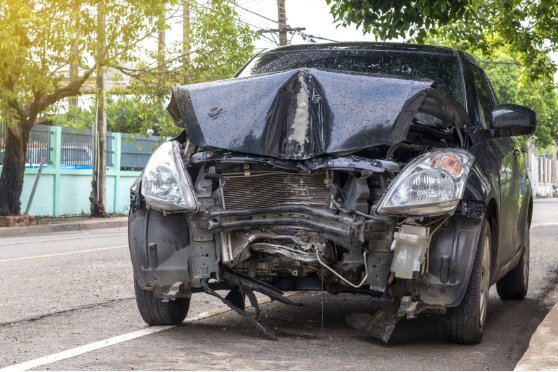If a car hits your property, figuring out what to do next can be tricky. This guide helps you understand how car accidents, property damage, and insurance work together. We focus on getting you ready for unexpected events, going over the basics of insurance policies, who is at fault, and how to keep your property safe.
Understanding Liability and Insurance Coverage
When property damage occurs in a vehicular accident, the concept of liability becomes paramount. Essentially, the party at fault is responsible for compensating any damages incurred. Most states mandate drivers to have a minimum property damage liability coverage. This portion of an auto insurance policy is designed to cover the costs of damaging another’s property with your vehicle. However, there are instances where this coverage might fall short of the actual repair costs.
In such scenarios, homeowners insurance may cover the gap the auto insurance policy’s limitations left. Understanding the nuances of these insurance coverages can significantly ease the stress associated with damage repairs.
Scenarios and Insurance Responses
If Another Driver Damages Your Property
Immediate action involves documenting the incident and contacting the authorities. Following this, the at-fault driver’s auto insurance is usually the first line of financial recovery for the damages. If their coverage is inadequate, your homeowner’s insurance might cover the excess damages, assuming the cost exceeds your policy’s deductible.
If an Uninsured Driver Damages Your Property
The reality of encountering an uninsured driver can complicate matters. Your homeowner’s insurance policy may offer solace by covering the damages minus the deductible. Through subrogation, your insurer may attempt to recover costs from the at-fault driver, potentially recouping your deductible. Nevertheless, this process can be lengthy and is not guaranteed.
If You Damage Your Property
An intriguing twist occurs when you cause damage to your property, such as backing into your garage door. In such cases, your auto insurance is unlikely to cover the damages. This is where your homeowner’s insurance can be a valuable asset, provided the repair cost surpasses your deductible.
Tips for Insurance Coverage
A prudent step for all drivers is maintaining higher liability limits than the state-mandated minimums. This strategy enhances your asset protection, offering peace of mind in the face of potential accidents. Regularly reviewing and adjusting your coverage can protect you against evolving risks.
Navigating Claims and Repairs
Filing a claim requires thorough documentation and timely communication with your insurance provider. Obtaining repair estimates from reputable professionals can aid in this process, ensuring you make informed decisions regarding filing a claim. Evaluating the cost of repairs related to your deductible is crucial in determining the financial viability of your claim.
Conclusion
Navigating the aftermath of a car damaging your property can be daunting. However, a robust understanding of liability and adequate insurance coverage can mitigate the financial and emotional strain. By preparing for such incidents through informed insurance choices and understanding the steps to take should an accident occur, you can safeguard your property and financial well-being effectively. Regularly revisiting your insurance policies to adjust coverage as necessary can further bolster your readiness for such unforeseen events.
FAQs
What steps should I take immediately if a car damages my property but the driver flees the scene?
First, ensure your safety and check if there are any immediate risks. Then, document the scene with photos and note any details of the car or event you remember. Contact the police to report a hit-and-run; their report will be crucial for your insurance claim. Finally, contact your insurance company to inform them of the incident. They can guide you on the next steps, especially regarding filing a claim under your homeowners insurance policy.
Will filing a claim for car damage to my property affect my future insurance premiums?
Filing a claim may impact your future premiums, but the effect varies by insurer and the specifics of your policy and claim history. Generally, if you are not at fault, your premiums are less likely to increase. It’s best to discuss this with your insurance agent, who can provide guidance based on your policy.
What if the cost of repairs is close to my homeowners insurance deductible?
If the repair costs are near your deductible, it might not be financially beneficial to file a claim, especially considering potential impacts on your future premiums. Evaluate the total repair costs, your deductible amount, and discuss with your insurance agent to make an informed decision.
Get the right coverage for your home with tutenagency
New tutenagency customers?
Quote homeowners insurance online or call (334) 502-5111 to insure your home.
Legal Disclaimer: ADVERTISING MATERIAL ONLY. Do not rely on this site or this article for legal or financial advice. The information provided on 210agency.com is strictly for educational purposes and to provide you with general educational information. Since state laws and financial regulations are subject to change, please schedule an appointment with an attorney or qualified financial advisor in your area to further discuss your personal situation. This public information is neither intended to, nor will it, create an attorney-client or financial representative relationship.

